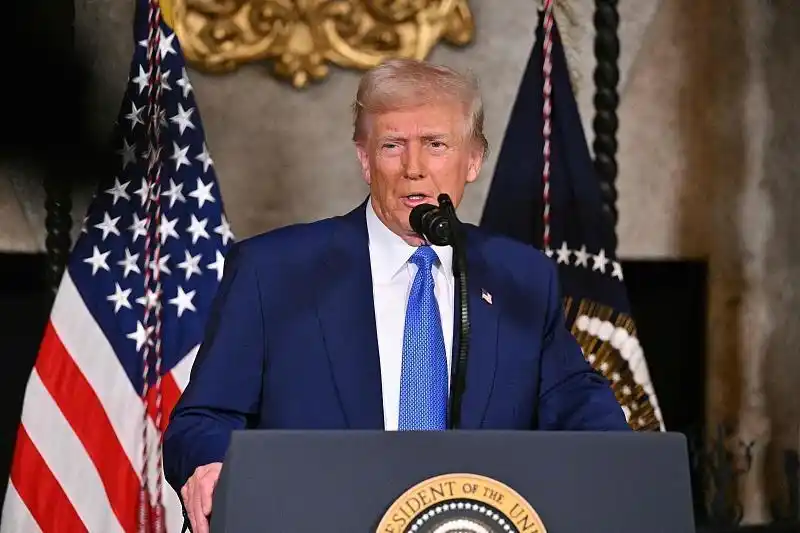
On July 12th local time, US President Trump posted a letter on the social media platform "Real Social" to Mexican President Simbaum and European Commission President von der Leyen, announcing that from August 1, 2025, the United States will impose a 30% tariff on products imported from Mexico and the European Union. This news is like a heavy bomb, instantly causing waves in the international economic and political fields, triggering widespread global attention and strong responses from relevant parties.
Trump claimed that Mexico has failed to prevent fentanyl and other substances from entering the United States, and has not done enough to cooperate with the United States in preventing illegal immigrants from entering the country; The EU's tariffs and non-tariff trade barriers have led to a huge trade deficit between the United States and Europe, and the relationship between the two sides is far from mutually beneficial. The wording in the letter is basically consistent with the letters sent to leaders of other countries in the past week. In addition to a tough tariff statement, it also includes warnings not to retaliate against the tax increase, encouragement for other companies to move to the United States, and the possibility of adjusting tax rates if the other party actively cooperates.
French President Macron condemned Trump's threatening remarks and called on the EU to "firmly defend European interests", emphasizing that if the two sides fail to reach an agreement before August 1, the EU will "use all available means to intensify preparations for practical countermeasures". Dutch caretaker Prime Minister Schoff said that the announcement by the United States to impose a 30% tariff on goods from the European Union is worrying and not the right way to solve the problem. The tariffs threatened by the United States will not only harm European export companies, but also have a significant impact on the economy and consumers across the Atlantic. The German Confederation of Industry issued a statement stating that the US has announced a 30% tariff on EU goods, which is a warning signal for the industrial sectors on both sides of the Atlantic. The US uses tariff policies as a means of exerting political pressure, which will lead to increased costs, harm employment, and weaken the international competitiveness of Europe and the United States.
Mexico also opposes this measure taken by the United States. The Mexican federal government issued a statement on the 12th stating that the tariffs officially proposed by the US on Mexico that day were "unfair". Mexican President Simbaum stated at the event that Mexico is seeking to resolve its differences through diplomatic means and will not make any concessions on the issue of national sovereignty. The Mexican Ministry of Foreign Affairs and Ministry of Economy stated in a joint statement that, given the announcement by the United States of a new 30% tariff on Mexican products imported to the United States from August 1st, the Mexican government considers it "unfair treatment" and has begun negotiations with the United States to protect border businesses and employment.
The United States' simultaneous targeting of two important trading partners, the European Union and Mexico, is seen as a significant upgrade in its trade policy by the outside world. The European Union and Mexico have always been important trading partners of the United States, with close economic ties and massive trade volumes. This tariff measure by the United States may not only have a direct impact on transatlantic and US Mexico trade relations, but also trigger a chain reaction in the global trade pattern, further disrupting the global supply chain and industrial chain, and exacerbating uncertainty in international trade. At a time when the global economy has not fully recovered from the impact of the pandemic and is facing many unstable factors, the decision of the United States undoubtedly casts a shadow over the already fragile prospects of global economic recovery. The world is waiting to see how all parties will respond and how the event will develop in the future.

Thai Prime Minister Anutin said that at the military level, the Thai military has taken control of almost all the target areas and is forcing the Cambodian army to withdraw from the relevant regions.
Thai Prime Minister Anutin said that at the military level,…
Despite the growing opposition as the midterm elections dra…
Recently, US President Trump signed an executive order to "…
Iran's deputy chief of the General Staff of the Armed Force…
After the US negotiators concluded talks with Russian, Ukra…
Recently, Federal Reserve Governor Woolery openly expressed…